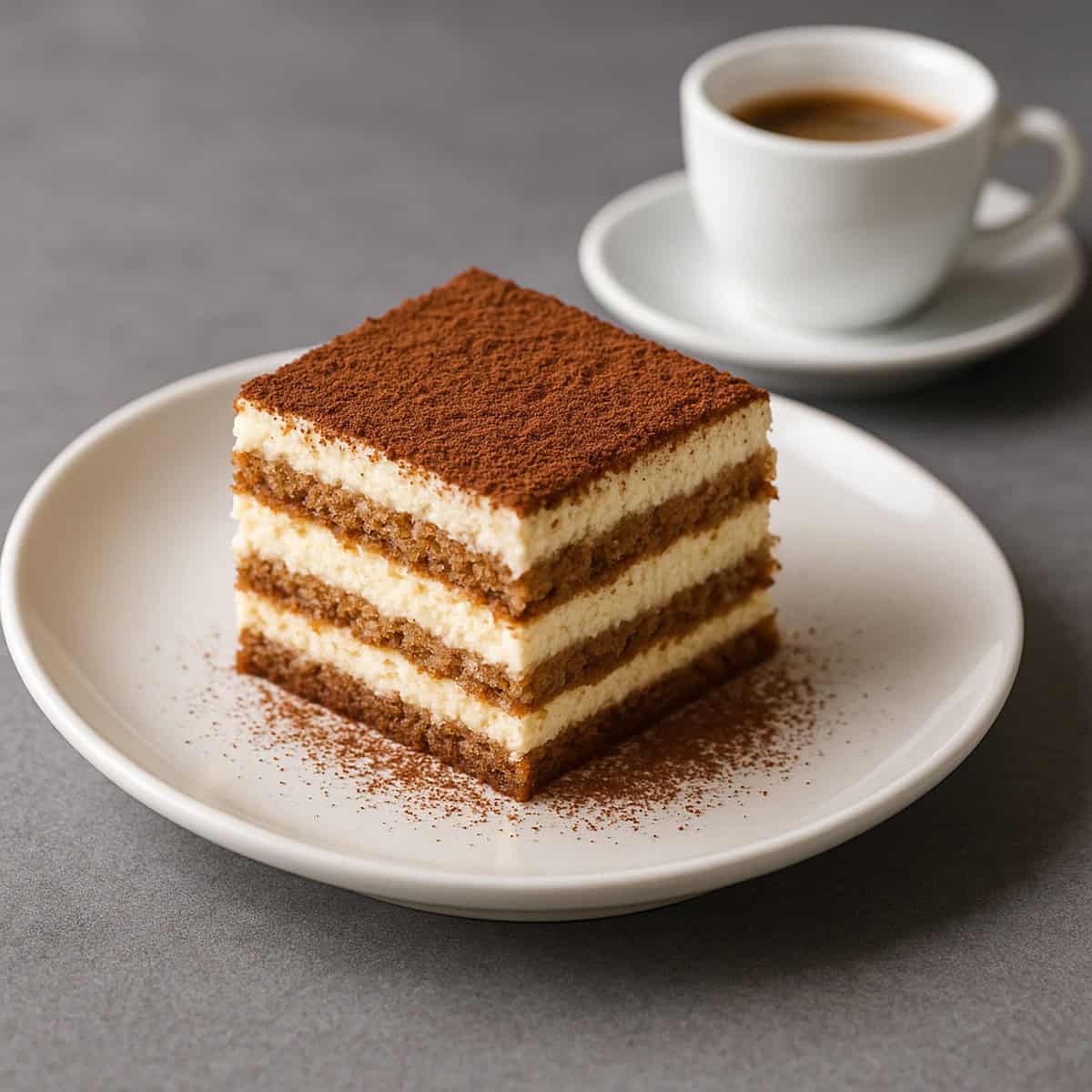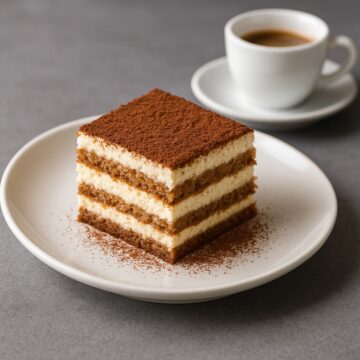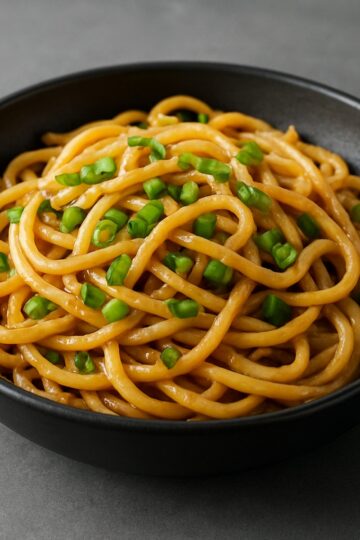
📌 What Is Tiramisu?
Tiramisu, which means “pick me up” in Italian, is a beloved no-bake dessert made from layers of espresso-dipped ladyfingers, mascarpone cream, and a dusting of cocoa powder. Light, airy, and deeply flavorful, it’s the kind of dish that makes people close their eyes with the first bite. Originating from Veneto, tiramisu is Italy’s most iconic dessert — and it couldn’t be easier to make.
🛒 Ingredients (Serves 8–10)
- 6 egg yolks
- ¾ cup granulated sugar
- 1 cup heavy cream
- 16 oz mascarpone cheese, softened
- 1 ½ cups brewed espresso or very strong coffee, cooled
- ¼ cup coffee liqueur (optional: Kahlúa, Marsala, or dark rum)
- 1 package (7–8 oz) ladyfinger cookies (savoiardi)
- Unsweetened cocoa powder, for dusting
- Dark chocolate shavings (optional)
🔥 Instructions to make Tiramisu
- Make the zabaglione base: In a heatproof bowl over a pot of simmering water, whisk egg yolks and sugar until thick, pale, and doubled in volume (about 8–10 minutes). Remove from heat and let cool.
- Whip the cream to stiff peaks in a separate bowl.
- Fold mascarpone into the cooled yolk mixture until smooth.
- Gently fold in whipped cream in two parts to form a light, airy filling.
- Mix espresso and liqueur in a shallow bowl. Quickly dip each ladyfinger for 1–2 seconds on each side — don’t soak or they’ll fall apart.
- Assemble in a 9x9 or 9x13 pan:
- First layer of soaked ladyfingers
- Half the mascarpone cream
- Repeat layers
- Smooth the top
- Refrigerate at least 6 hours, preferably overnight.
- Dust with cocoa powder and chocolate shavings before serving.
🍴 Serving Suggestions
- Best served chilled in squares or scooped with a spoon
- Garnish with espresso beans, dark chocolate curls, or berries
- Pair with vin santo, amaro, or an after-dinner espresso
💡 Recipe Tips for Classic Tiramisu
- Use high-quality mascarpone — not cream cheese
- Ladyfingers must be briefly dipped — a quick roll is enough
- For egg-free, cook-free version: sub zabaglione for whipped mascarpone + sugar
- This recipe can be made in glasses for individual servings

Classic Tiramisu: The Ultimate No-Bake Italian Dessert
Ingredients
Ingredients (Serves 8–10)
- 6 egg yolks
- ¾ cup granulated sugar
- 1 cup heavy cream
- 16 oz mascarpone cheese softened
- 1 ½ cups brewed espresso or very strong coffee cooled
- ¼ cup coffee liqueur optional: Kahlúa, Marsala, or dark rum
- 1 package 7–8 oz ladyfinger cookies (savoiardi)
- Unsweetened cocoa powder for dusting
- Dark chocolate shavings optional
Instructions
Instructions
- Make the zabaglione base: In a heatproof bowl over a pot of simmering water, whisk egg yolks and sugar until thick, pale, and doubled in volume (about 8–10 minutes). Remove from heat and let cool.
- Whip the cream to stiff peaks in a separate bowl.
- Fold mascarpone into the cooled yolk mixture until smooth.
- Gently fold in whipped cream in two parts to form a light, airy filling.
- Mix espresso and liqueur in a shallow bowl. Quickly dip each ladyfinger for 1–2 seconds on each side — don’t soak or they’ll fall apart.
Assemble in a 9x9 or 9x13 pan:
- First layer of soaked ladyfingers
- Half the mascarpone cream
- Repeat layers
- Smooth the top
- Refrigerate at least 6 hours, preferably overnight.
- Dust with cocoa powder and chocolate shavings before serving.
Notes
Best served chilled in squares or scooped with a spoon Garnish with espresso beans, dark chocolate curls, or berries Pair with vin santo, amaro, or an after-dinner espresso 💡 Recipe Tips
Use high-quality mascarpone — not cream cheese Ladyfingers must be briefly dipped — a quick roll is enough For egg-free, cook-free version: sub zabaglione for whipped mascarpone + sugar This recipe can be made in glasses for individual servings 🌍 Cultural Context
Tiramisu first appeared on Italian menus in the 1960s–70s, with roots claimed by both Veneto and Friuli Venezia Giulia. While recipes vary (some use raw eggs, others omit alcohol), what stays constant is its reputation: a simple dessert that delivers elegance in every spoonful.
🌍 Cultural Context
Tiramisu first appeared on Italian menus in the 1960s–70s, with roots claimed by both Veneto and Friuli Venezia Giulia. While recipes vary (some use raw eggs, others omit alcohol), what stays constant is its reputation: a simple dessert that delivers elegance in every spoonful.


Comments
No Comments